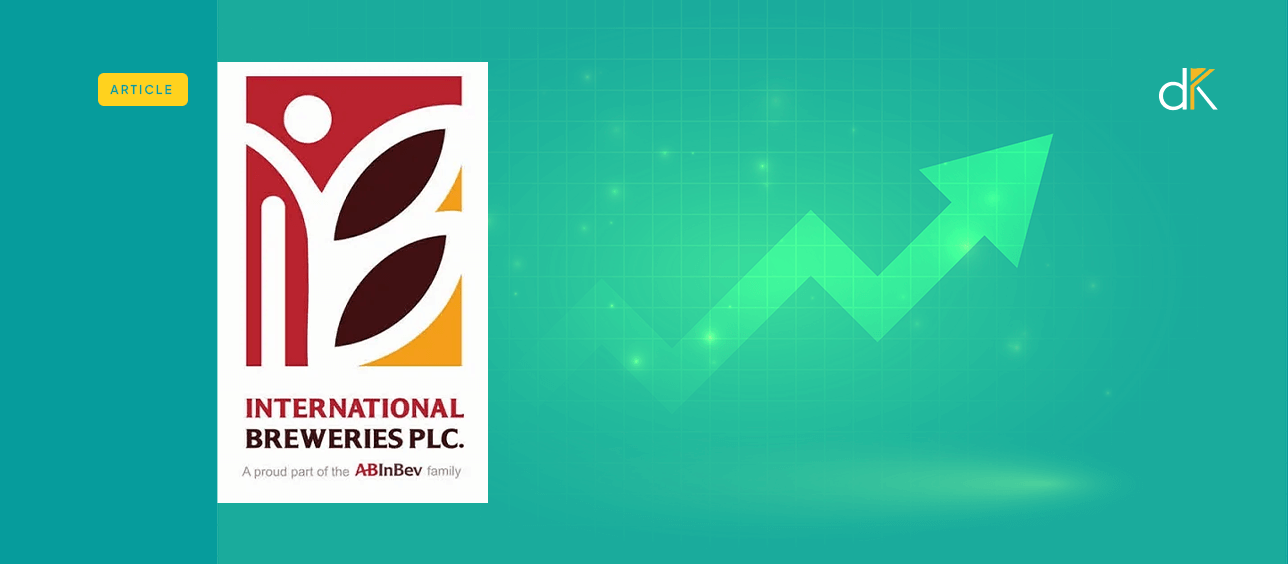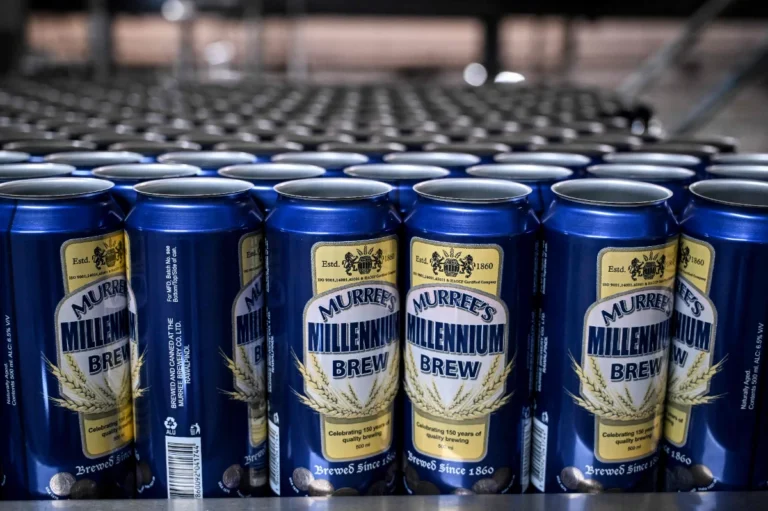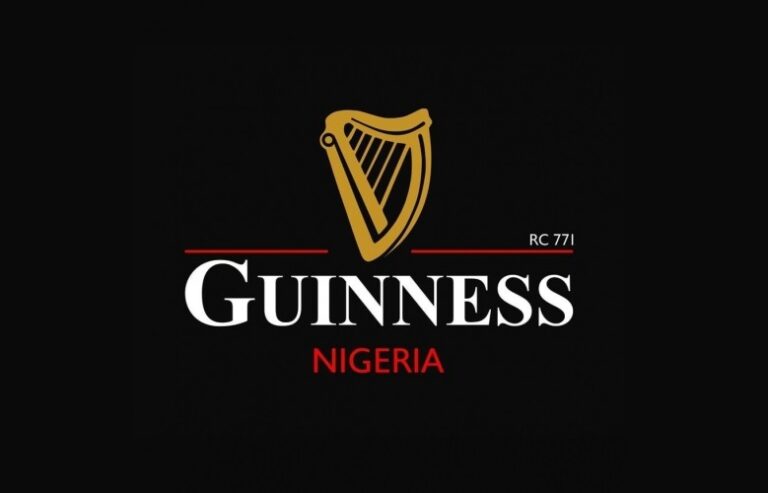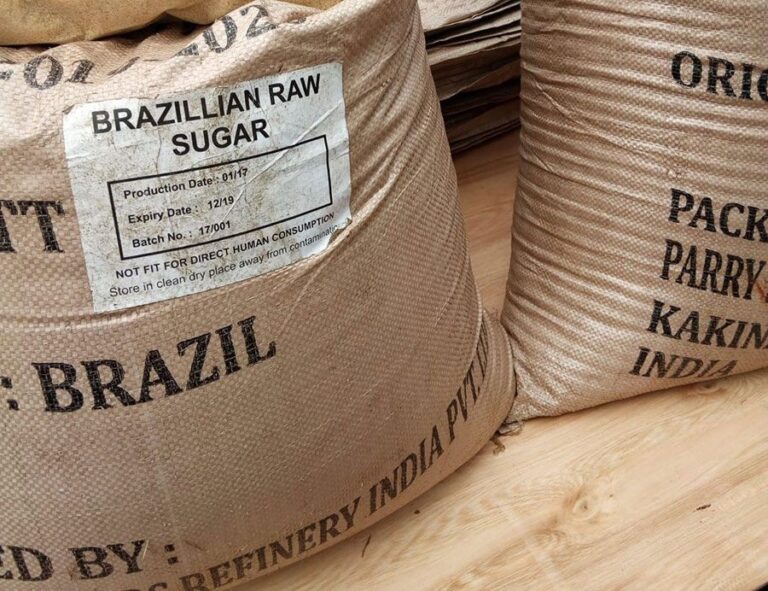After securing the necessary approvals, the management of a leading Nigerian brewer, the International Breweries Plc, announced a rights issue aimed at raising N588bn to address the company’s capital structure and enhance its financial sustainability.
Carlos Coutino, the company’s Business Unit President said, at the event organised to engage potential investors, that the rights issue “is to fix our historical gap challenge due to the debts…and we’re working on a sustainable manner to reach profitability.”
He added that “this will enable dividends in the future, so it’s very important for all the shareholders to take up their rights.”
It is crucial to note that International Breweries is not looking for new shareholders. Rather, it is asking its existing shareholders to trust the company with further investments. Therefore, whether this offer succeeds will depend on trust that the shareholders will repose in the company’s management, operational strategy and Nigeria’s macroeconomic dynamics.
This edition of Beverage Deep Dive fills the yawning gaps in the scanty reports available online about the announcement. We checked the company’s website and surprisingly could find nothing about the rights issue on its home page, found the advert tucked away in the investor’s section and a FAQ document also tucked away on the annual reports page. Also, we found a social media post about the rights issue only on the company’s LinkedIn page.
SIDE NOTES I:
Share Re-denomination
When a company adjusts downward the nominal value of its shares, it is essentially reducing the face value of its shares. This change does not affect the overall value of the company or the market capitalisation but affects the accounting treatment of the shares. Here are some implications of adjusting downward the nominal value of shares.
Share Split
A downward change in the nominal value of shares typically occurs through a share split. For example, if a company adjusts the nominal value of its shares from N1 to N0.50k, it may issue two shares for every one outstanding share. This can increase the number of shares outstanding without affecting the overall value of shareholders’ equity.
Increase in Liquidity
By reducing the nominal value of shares, companies can make their shares more affordable and attractive to a wider range of investors. This change might increase trading volume and improve liquidity in the market.
While it is understandable that the company focuses its resources on convincing only its existing shareholders, it misses the point that these shareholders are under the influence of many other factors.
About the rights issue
- 161,172,395,100 units of new ordinary shares of 2k each at an offer price of N3.65k per share.
- Compared to its current share price of N3.99k, the rights issue is offered at about 9 percent discount to reward shareholders.
- 6 new ordinary shares for every ordinary share held as at 2nd May, 2024. This means that if you hold, for example, 100 units of shares of the company, you may now buy up to 600 additional units.
- Acceptance of the offer closes on June 10, 2024
- If subscribed 100 percent, the company would have succeeded in its bid to raise N588,279,242,115.
- The issuing house is Chapel Hill Denham, whose erstwhile chairperson is Nigeria’s current finance minister.
Implication of Share Re-denomination
With this rights issue, IB Plc is reducing the nominal value of its share from 50k to 2k. While this is only a technical accounting process that does not alter the intrinsic value of the company [Sidebar 1: What does share re-denomination mean?], this re-denomination means the following for IB Plc:
SIDE NOTES II:
Accounting Impact
The downward change in nominal value affects the company’s financial statements. It may cause changes to the capital structure, share premium accounts, and other equity-related accounts. Companies need to disclose this change in their financial reports to provide transparency to investors and regulators.
Capital Reorganisation
Adjusting downward the nominal value of shares can be part of a larger capital reorganisation strategy. Companies may undertake this change to simplify their capital structure, comply with regulatory requirements, or realign their shares to reflect their true value or performance.
Overall, adjusting downward the nominal value of shares is a technical accounting process that does not alter the intrinsic value of the company but can affect how the shares are traded, accounted for, and perceived by investors
- It reduces the company’s share capital from N13.4bn to N537.24m (just multiply the company’s outstanding share, which is 26,862,065,850 units by 50k and then by 2k).
- That is a difference of N12.9bn. Is this a loss? No, while there are different options to account for this difference, the company converted it to share premium. Also known as additional paid-in capital, share premium is the amount of money that a company receives from investors who pay more than the face value of the shares when they are issued.
- The new re-denomination increases IB Plc’s share premium from N159.8bn to N172.7bn, according to company documents.
Going by the above analysis, IB Plc’s shareholders have paid about N172.7bn than the company’s share is worth. Yet, it is interesting that the company is trusting its shareholders to bring more money to invest in the business, when at face value, it may be better to look for new investors that would be patient for profit.
However, doing this will lead to share dilution and it appears not toeing this line represents the company’s respect and value for its existing shareholders. Its management appears to be saying, “Look, we trust in our strategy to become profitable and when we do, we want you all, our shareholders to enjoy the full benefit of the profits and not have to share it with new investors”.
But can this whisper from the company’s management elicit the much-needed rust in the minds of its shareholders?
For context, just about five years ago, in December 2019, the company raised N164.4bn through a rights issue of 18.3bn units of ordinary shares of 50k each priced at N9 per share. For every 8 units of shares held as of then, each shareholder bought an additional 17 new shares. The rights issue was 100 percent subscribed, signalling shareholders’ explicit trust in the company.
As of the time the company announced the latest rights issue, it has 26.8bn shares, listed on the Nigerian Stock Exchange for N3.99k. This represents about 55 percent loss for those who bought into the 2019 rights issue at N9 per share If the current rights issue is successful, the company’s publicly listed shares will increase exponentially to 188bn, the highest on the Nigerian Stock Exchange, beating Transcorp’s 40.65bn outstanding shares.
Though, the history of the company is that of one that is yet to repay shareholders’ expectations, going by its huge share premium this alone does not tell the whole story and it will be unfair to judge the company and its latest rights issue by this alone.
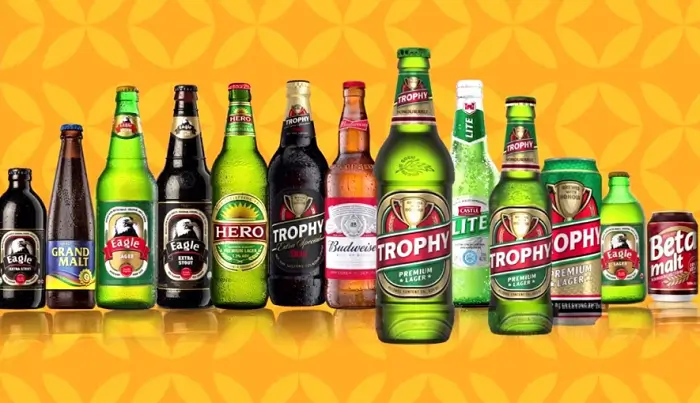
The Big Question
The big question is why does IB Plc need to raise N588bn and why does it want to raise it from its shareholders?
To understand this daring move by the company’s management and shareholders, it is important to dive into the company’s recent history.
It all started when AB Inbev, the world’s largest brewer by revenue, acquired SABMiller, the world’s second largest brewer with a tentative deal announced on 13 October 2015. The merger, valued at $107 billion, closed on 10 October 2016. As a result, the new company, Anheuser-Busch InBev SA/NV, became the world’s largest beer company. This acquisition marked a significant milestone in the beverage industry, solidifying AB InBev’s position as a global leader in the market.
The acquisition meant that all of SABMiller’s subsidiaries in Nigeria came under AB Inbev’s ownership as the majority shareholder including International Breweries Plc (36 percent), Intafact Beverages Limited in Onitsha (37.5 percent), and Pabod Breweries Limited in Port Harcourt. The percentage ownership after the acquisition was recorded in AB Inbev’s 2016 annual report.
Through a series of merger transactions, the three Nigerian subsidiaries were immediately merged under the International Breweries brand, perhaps because it had the most healthy balance sheet of the three. The consolidation as expected resulted in a net loss for the new company, which it has not shaken off since then.
AB Inbev appeared patient for profit but impatient for growth. It did not mind that the merged company posted a net loss of about N3.8bn in 2018, as recorded in the company’s 2018 annual report. It did not wait for the new company to find a profitability model before ramping up a growth strategy. In 2019, It injected about N123bn into IB Plc through the latter’s 2019 rights issue to increase AB Inbev’s shareholding in International Breweries to 43.65 percent, as seen in its 2020 annual report. IB Plc
Also, as stated in a company document, took a loan of $424m the same year “to fund the construction of the Sagamu brewery as well as other capital expenditure needs.”
The signature Gateway brewery is currently the largest in sub-Saharan Africa and it reportedly cost about $250m.
From the prism of the strategic business management theory of good and bad capital, that would in hindsight prove to be a costly error. The theory, as explained in Clayton Christenson’s “How Will You Measure Your Life,” states that “When the winning strategy (profitability model) is not yet clear… good money from investors needs to be patient for growth but impatient for profit. It demands that a new company figures out a viable strategy as fast as and with as little investment as possible.”
The new IB Plc did the reverse of what the theory recommends for good capital. It was impatient for growth. It did not wait to find a profit model before launching out its growth strategy and has been posting net losses since then, despite an impressive revenue base – the second highest in Nigeria’s beverage industry. International Breweries, before AB Inbev’s acquisition, was a modest profitable company. Its profit after tax was N2.1bn (2014), N1.9bn (2015), N2.65bn (2016) and N1.03bn (2017).
The new IB Plc started declaring losses by the end of 2018, after the mergers and the commencement of the growth plan in the new owners’ bid to break the stranglehold of market leader, Nigeria Brewery, on Nigeria’s alcoholic beverage market. In taking the loans to fund this growth plan, it appears the company also did not appraise the threat posed by Nigeria’s macroeconomic indicators, particularly the weak and wobbling foreign exchange market. The company’s strategy of importing a significant amount of its raw materials also became unsustainable as it became more difficult to source for US Dollars to fund the importation.
“When the winning strategy (profitability model) is not yet clear… good money from investors needs to be patient for growth but impatient for profit. It demands that a new company figures out a viable strategy as fast as and with as little investment as possible.”
The combined effect of servicing foreign loans and having to import raw materials exposed IB Plc to high dollar-denominated liabilities, which battered its ship like an angry tide. The company’s revenue – impressive as it is – could not withstand the battering from the unforeseen headwind. IB Plc admitted that “due to the constraints of sourcing US Dollars, IB PLC has had difficulty paying down the loan. The loan has had an impact on the Company’s profitability and subsequently the valuation of IB PLC.”
Everything looked good for the company in 2019 and shareholders showed its trust with the fully subscribed rights issue but its ship ran into the headwind of Nigeria’s unstable foreign exchange policy, dashing shareholders’ hope. A little patience to allow the new IB Plc to find a profitable model could have helped the ship avoid the headwind. Or a little attention to the company’s PESTLE analysis could have signalled the need for a bulwark.
IB Plc is not the only company that is guilty of being caught in the troublesome tide created by the headwind known as Nigeria’s weak currency base. Hardly is there any conglomerate operating in Nigeria that is in the safety zone. They are all battered to different degrees but some, like IB Plc are caught at the intersection of life and death.
Imagine each conglomerate operating in Nigeria as a ship, once a majestic vessel slicing through calm waves of the country’s economic sea, now transformed into a toy battered by an unseen giant. The wind, once a gentle breeze, has morphed into a howling beast, screaming through the ship’s rigging like a banshee. The once-proud sails billow and snap, threatening to tear from the masts. Once a serene turquoise blanket, the sea churns into a frothing expanse of angry tides, each one a potential monster ready to swallow the ship whole.
This is the situation that IB Plc has found itself in. In this situation, the blame game is a waste of time. There should be only one purpose on the minds of every stakeholder connected to IB Plc, and that is survival. And who would not want the company to survive after investing in an impressive future-proof and forward-looking brewery powered by renewable energy 2,000 square metres of solar panel? If for the sake of the company’s impressive sustainability strategy alone, the company’s survival could be worth fighting for.
This strategic move strengthens the company’s capital structure and stabilises its financial position – call it a “bailout” from the macroeconomic factors and historical losses since the merger of three breweries in 2017. The move also aligns with the company’s goal of improving profitability and positioning itself for future dividend payments to shareholders.
IB Plc might have bitten more than it can chew but what should it do? Continue to ride its luck until it bites the dust or confronts reality and bites the bullet?
Biting the Bullet
Like President Bola Ahmed Tinubu did with Nigeria’s fuel subsidy policy, whose debt burden has become an albatross to the country, IB Plc, through the rights issue, has bitten the bullet by raising N588bn to pay off its foreign third-party loans and create a backward integration project to optimise its supply chain. Doing these will significantly improve its cash flow and restore it to profitability. This is the only path the company has to trace its steps back to sustainability and profitability.
With a loyal customer base across its popular brands like Budweiser, Hero, Trophy, Flying Fish, Castle Lite, Beta Malt, and others, the company’s revenue potential is assured, increasing from N120.6bn in 2018 to N260.6bn in 2023. For context, IB Plc’s revenue grew by 19.18 percent between 2022 and 2023; that of Nigerian Breweries Plc grew by 8.9 percent and that of Guinness Nigeria Plc grew by 10.9 percent over the same period. This is a silver lining that may encourage the shareholders to once again, and hopefully for the last time, trust the company with their hard-earned money.
Another trust signal is that AB Inbev, according to the company’s management, will underwrite the rights issue. With underwriting, AB Inbev is essentially providing a safety net or financial backing to the rights issue, assuring that all the new shares will be sold, even if other shareholders do not fully subscribe to the offering. This commitment from AB Inbev helps to reduce the risk for International Breweries Nigeria and gives confidence to existing shareholders that the rights issue will be successful and fully subscribed.
This is a show of confidence in the Nigerian market and a loud statement that it is a long-term investor. This perhaps is the biggest endorsement for the rights issue.
“There should be only one purpose on the minds of every stakeholder connected to IB Plc, and that is survival. And who would not want the company to survive after investing in an impressive future-proof and forward-looking brewery powered by renewable energy 2,000 square metres of solar panel? If for the sake of the company’s impressive sustainability strategy alone, the company’s survival could be worth fighting for.”
The Big ‘But’
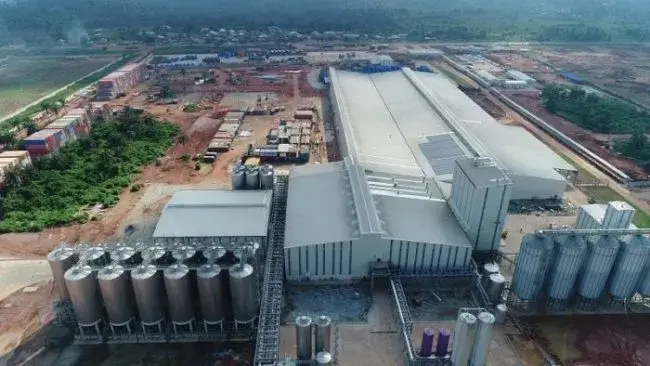
IB Plc is not new to taking daring steps. The one it took between 2018-2019 pushed its share premium from a mere N6.1bn in 2019 to N159.8bn in 2020 as seen in its 2022 annual report. The latest rights issue offered at 2k is poised to further increase it to N172.7bn.
Therefore, its management would need to show uncommon grit to be impatient for profit. This is where there appears to be a lack of clarity and determination. For instance, when asked about the possibility of taking foreign loans in the future, the company’s finance director, David Tomlinson, said “I can’t rule out anything in the future but looking at what we know today we can say that it would not be wise for us to create incremental dollar exposure.”
This statement appears to be saying that management may be open to taking foreign loans in the future should the condition favours it. Has the management learnt any lesson? To not rule out foreign loans is a sign of the company’s weak commitment to the backward integration plan.
In its 2022 annual report, the category “Bought in materials and services” had a 58 percent foreign component while the local component had 48 percent. In the same year, it employed 761 people in the management cadre and 792 people in the non-management cadre. This shows a top-heavy organisational structure. One may even ask if the company’s balance sheet justifies locating its office in Banana Island, the most expensive and luxurious estate in Africa, considering that its non-current lease liabilities jumped from N10.4bn in 2022 annual report to N15.7bn in 2023. A non-current liability, also known as long-term liability, is a financial obligation that is not due within the next 12 months. The management should be seen showing measures to reduce its operating costs, in alignment with one of the company’s culture of managing costs “tightly.” The company also needs to improve its communication strategy.
Conclusion
IB Plc is at a period when it needs its shareholders’ trust the most. It is a make-or-break offer and we hope the shareholders respond positively. It is a company with a long-term plan and the combination of its sustainability strategy and growing revenue can transform the company into a national pride in the future.
Investing in International Breweries presents an interesting opportunity backed by strong trust indicators. The unwavering support from majority shareholder AB InBev signifies a robust partnership and long-term commitment to Nigeria’s market, instilling confidence in the company’s future growth prospects. Shareholders’ positive response and appreciation of International Breweries’ initiatives to restore profitability underscore the trust and endorsement of the company’s strategic direction. The regulatory approval from the Securities and Exchange Commission (SEC) marks a pivotal milestone, reflecting credibility and progress in the company’s efforts to raise funds and bolster financial sustainability. These trust signs collectively reinforce International Breweries as a promising investment choice for potential investors seeking stability and growth in the beverage industry.

